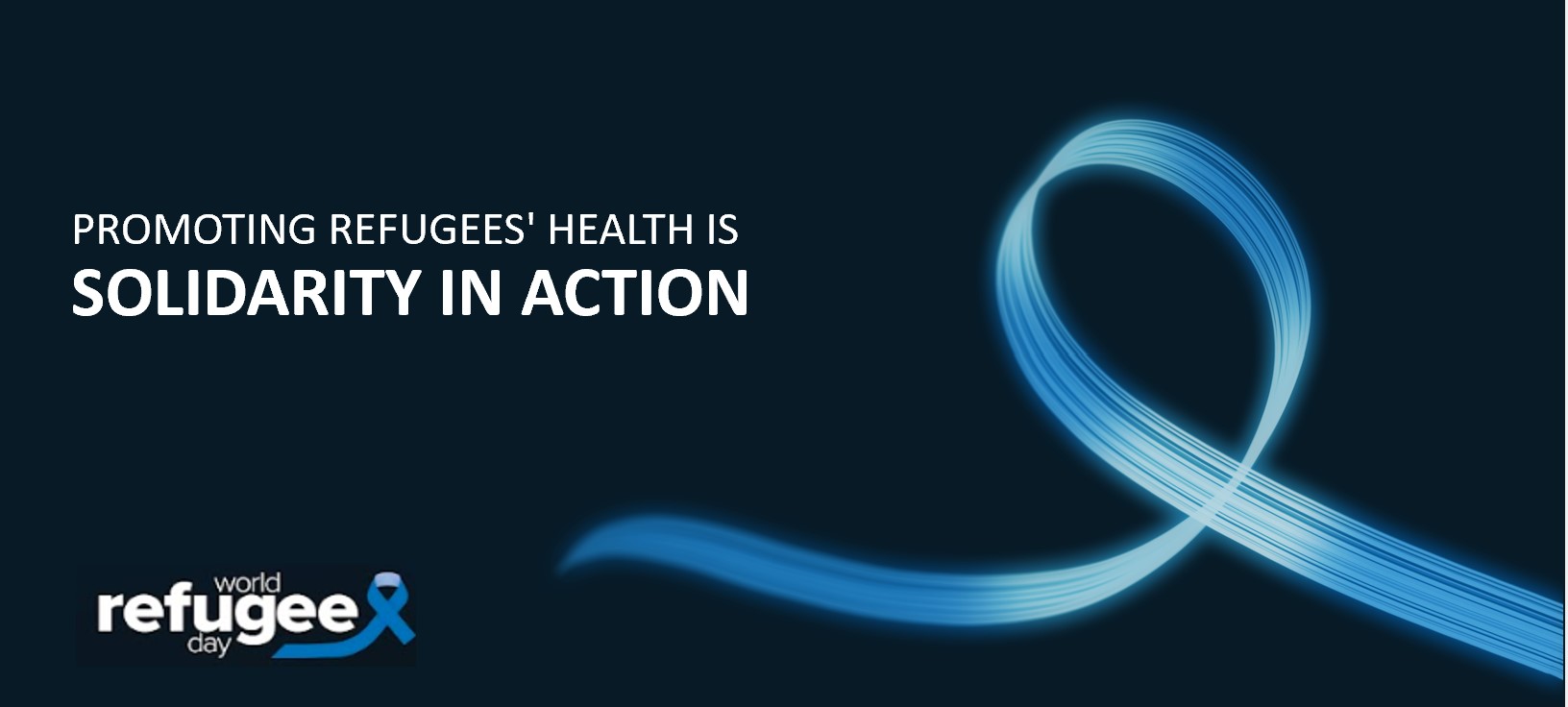
Health for All: Solidarity with refugees
On World Refugee Day 2025, the World Health Organization (WHO) stands in solidarity with the over 123 million forcibly displaced people worldwide, reaffirming that health is a fundamental human right, essential to dignity, protection, and inclusion. Under the theme “Solidarity with Refugees,” WHO calls for urgent action to strengthen inclusive, resilient health systems that leave no one behind.
As protracted displacement rises, many fleeing conflict and disasters are spending over a decade awaiting legal recognition. Over 70% are hosted in low- and middle-income countries, often in urban areas, where legal, financial, and structural barriers hinder access to health. Among them are over 47 million children, facing disrupted access to health, education, and protection. Women and newborns’ lives are at heightened risk with disrupted maternal and essential care as barriers to access increase. Notably, refugees are not only recipients of care. They are also scientists, health workers and leaders who enrich the social and economic fabric of both host and origin countries.
Despite meaningful progress and growing commitment of Member States to integrate refugee health into national strategies and universal health coverage, global momentum remains at risk. Many refugees face significant barriers to realizing their full right to health, often worsened by negative rhetoric and discrimination. Shrinking humanitarian budgets are already leading to cuts in essential services, including Mental Health and Psychosocial Support (MHPSS), maternal health and primary care.
WHO calls on governments, partners and communities to deepen their commitment by:
- ensuring universal access to care, regardless of status;
- investing in equitable, evidence-driven and cross-border solutions that leave no one behind;
- funding evidence generation to inform responsive, data-driven systems; and
- strengthening health workforce capacity to provide culturally-sensitive, quality care.
Driving progress: Key recent highlights in refugee health promotion
WHO Health and Migration collaborates with countries and partners to implement the 2019–2030 Global action plan on promoting the health of refugees and migrants (WHO GAP). Key recent milestones include:
- implementing the WHO Global research agenda on health, migration and displacement- developing national and regional research agendas and action plans, and supporting operational research (immunization and health financing innovations);
- in-depth health system assessments in Bulgaria, Thailand, Uganda, Jordan, Czechia, Estonia, South Africa and Chile, driving tangible policy shifts, integrating refugee health into national health planning;
- launching the Dashboard on Global Experiences in Promoting Refugee and Migrant Health featuring over 140 case studies from 63 countries, sharing data-driven insights and scalable models for refugee health;
- training over 19 000 professionals from 187 countries through the Global School, hosted in Switzerland, Jordan, Bangladesh, Senegal, and Colombia;
- Global Competency Standards e-learning course reaching 113 countries and awarding over 600 certificates, and additional country-level training of over 550 health workers, policymakers, and mediators across 13 countries; and
- 2025 progress report to the World Health Assembly highlighting key milestones in advancing WHO GAP implementation (135 countries have prioritized health and migration in the WHO Programme Budget for 2026–2027).
Country, regional and global efforts to support refugee and host community health
Across regions, WHO is working alongside governments, UNHCR and other partners to strengthen health responses for both refugees and host communities:
- In 2024 WHO trained 15 000 health workers in over 160 countries to address refugee physical and mental health needs, deploying experts to support refugee health workers in places like Armenia and Lebanon.
- In Chad and Uganda, WHO supports comprehensive Ministry of Health responses including new arrivals, outbreak response and epidemic surveillance, while deploying Emergency medical teams in fragile settings.
- In Cox’s Bazar, Bangladesh, through a major collaborative effort with partners, WHO led a cholera vaccination campaign for one million refugees and continues training health workers despite funding gaps.
- In Pakistan, community health workers in refugee settlements have been trained in maternal and perinatal death surveillance, alongside health facility upgrades.
- Refugee integration into national health systems advances in Colombia, while interpretation services in Romania assist refugees from Ukraine in accessing care.
